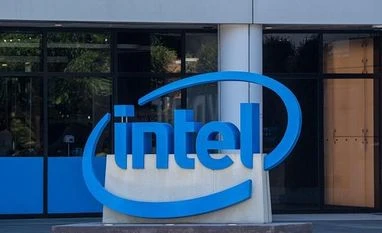Newest laptop chips, software will handle GenAI chatbot, says Intel
ntel executives also expect to say that the company is on track to deliver a successor chip called "Arrow Lake" next year, and that Intel's manufacturing technology will rival the best
)
Photo: Bloomberg
Listen to This Article
Intel said on Tuesday that a new chip due in December will be able to run a generative artificial intelligence chatbot on a laptop rather than having to tap into cloud data centers for computing power.
The capability, which Intel was expected to show during a software developer conference held in Silicon Valley, could let businesses and consumers test ChatGPT-style technologies without sending sensitive data off of their own computer. It is made possible by new AI data-crunching features built into Intel's forthcoming "Meteor Lake" laptop chip and from new software tools that the company is releasing.
Intel executives also expect to say that the company is on track to deliver a successor chip called "Arrow Lake" next year, and that Intel's manufacturing technology will rival the best from Taiwan Semiconductor Manufacturing Co, as it has promised. Intel was once the best chip manufacturer, lost the lead, and now says it is on track to return to the front.
Intel has struggled to gain ground against Nvidia in the market for the powerful chips used in data centers to "train" AI systems such as ChatGPT. Intel said Tuesday that it was building a new supercomputer that would be used by Stability AI, a startup that makes image-generating software.
But the market for chips that will handle AI work outside data centers is far less settled, and it is there that Intel aimed to gain ground on Tuesday.
Also Read
Through a new version of software called OpenVINO, Intel said that developers will be able run a version of a large language model, the class of technology behind products like ChatGPT, made by Meta Platforms on laptops. That will enable faster responses from chatbot and will mean that data does not leave the device.
"You can get a better performance, a lower cost and more private AI," Sachin Katti, senior vice president and general manager of Intel's network and edge group, told Reuters in an interview.
Dan Hutcheson, an analyst with TechInsights, told Reuters that business users who are weary of handing sensitive corporate data over to third-party AI firms might be interested in Intel's approach.
"AI is still in that class of technology where you need a PhD to do it," Hutcheson said. Intel Chief Gelsinger's challenge "is to democratize it. If he can pull that off, and make it so that anyone can use it, that creates a much bigger market for chips – the chips that he makes."
More From This Section
Topics : Artificial intelligence Laptops Intel
Don't miss the most important news and views of the day. Get them on our Telegram channel
First Published: Sep 19 2023 | 9:40 PM IST


